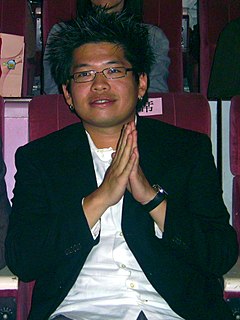A Quote by Steve Chen
Related Quotes
Every dollar spent to punish a drug user or seller is a dollar that cannot be spent collecting restitution from a robber. Every hour spent investigating a drug user or seller is an hour that could have been used to find a missing child. Every trial held to prosecute a drug user or seller is court time that could be used to prosecute a rapist in a case that might otherwise have been plea bargained.
Are you a person—with volition and maybe some stubbornness and at least the capacity if not the actual determination to do something surprising—or are you a tool? A tool just serves its user. It’s only as good as the skill of its user, and it’s not good for anything else. So if you want to accomplish something special—something more than you can do for yourself—you can’t use a tool. You have to use a person and hope the surprises will work in your favor. You have to use something that’s free to not be what you had in mind.
The user of land should not be allowed to acquire rights of indefinite duration for single payments. For efficiency, for adequate revenue and for justice, every user of land should be required to make an annual payment to the local government equal to the current rental value of the land that he or she prevents others from using.
Every day, hundreds of millions of people stab themselves, bleed, and then offer, like a sacrifice, to the glucose monitor they're carrying with them. It's such a bad user interface that even though in the medium-term it's life or death for these people, hundreds of millions of people don't engage in this user interface.



































